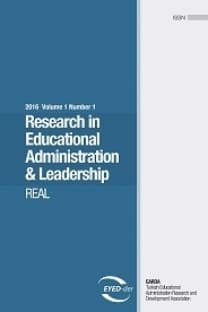Developing Leadership by Participating in Principal Professional Learning Communities (PPLCs) and the Added Value of Transnational Collaboration
This article presents a case study aiming to encourage and support principals from six countries to work in Principal Professional Learning Communities (PPLCs) to enhance their leadership competencies and foster strong leadership for school development and teacher learning. We argue that the need for principals to participate in a PLC is a fundamental but also forgotten perspective in school leadership. Our most important findings indicate that the principals participating in a PPLC gained (1) enhanced leadership skills, (2) awareness of and security in their own leadership roles, (3) new knowledge about organisation and implementation of PLCs and (4) appreciation of the importance of PLCs. An added value was the benefit of meeting peers from different countries, which contributed to their reflections about their own school systems and practices. We argue that facilitation and support is important to establishing effective PPLCs and that external support may be considered to create a structure for and to strengthen the outcomes of PPLCs. We further argue that local authorities should reinstate or restructure these meetings so that principals can focus on teaching and discuss the subject with their peers. Data for the study were collected through pre/post-surveys, in-depth interviews, reflection notes and audio recordings of workshops, world café meetings, a SWOT analysis, and group discussions.
Keywords:
Leadership development Principal professional learning community (PPLC), International networking,
___
- Austin, J. E., Grossman, A. S., Schwartz, R. B., & Suesse, J. M. (2007). Managing at scale in the Long Beach Unified School District. In S. Childress, R. F. Elmore, A. S. Grossman & S. M. Johnson (Eds.). Managing school districts for high performance (pp. 269–288). Cambridge, MA: Harvard Education Press.
- Yayın Aralığı: Yılda 4 Sayı
- Yayıncı: Dokuz Eylül Üniversitesi
